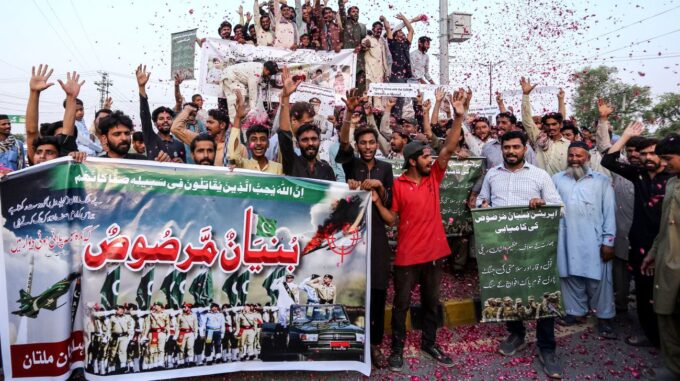India and Pakistan have made a significant step towards reducing tensions: the two nuclear states have officially confirmed an agreement to ceasefire, which could mark the beginning of a new era in their relations

According to the foreign ministers of both countries, this historic deal has been signed and is now in effect, offering hope for lowering conflict levels and returning to diplomatic resolution of long-standing disputes. This important news became known from official statements by both diplomats. India’s Foreign Minister Jaba Jaisankar, in his posts on the social media platform X (formerly Twitter), announced: “India and Pakistan have agreed today on a ceasefire and to return to peaceful talks. India remains consistent in its firm and uncompromising stance against terrorism in all its forms and expressions, and will continue to uphold these principles.” His Pakistani counterpart, Ishaq Dar, also noted on the same platform: “Pakistan and India have reached an agreement on an immediate ceasefire, which will take effect immediately after signing. Pakistan has always sought peace and stability in the region, while strictly defending its sovereignty and territorial integrity.” What led to such a historic agreement? The preconditions are quite long-standing and complex: tension between the two neighboring countries, ongoing for many decades, has repeatedly escalated into large-scale conflicts and sometimes even armed clashes. However, recent negotiations, actively involving American diplomats, indicate a shift in attitudes and a desire to find effective diplomatic solutions to resolve disputes. According to reports, the international community has long called for reducing military tensions and seeking sustainable peace in this strategically important region. U.S. President Donald Trump confirmed the information from diplomatic sources on Saturday, stating that after several nights of negotiations mediated by the United States, India and Pakistan agreed on a complete and immediate ceasefire. This undoubtedly creates prerequisites for further diplomatic dialogue and possibly the resumption of peace negotiations, which have been halted or complicated over the past years. Of course, much work remains to be done to solidify this agreement and turn it into a stable and long-term solution. However, this current step forward could be the first real sign of decreasing conflicts and a return to dialogue based on mutual respect and diplomacy. In light of these events, many analysts and international experts express hope that this move will open the way for deeper and more comprehensive negotiations that will contribute to stability and security in the region as a whole.

